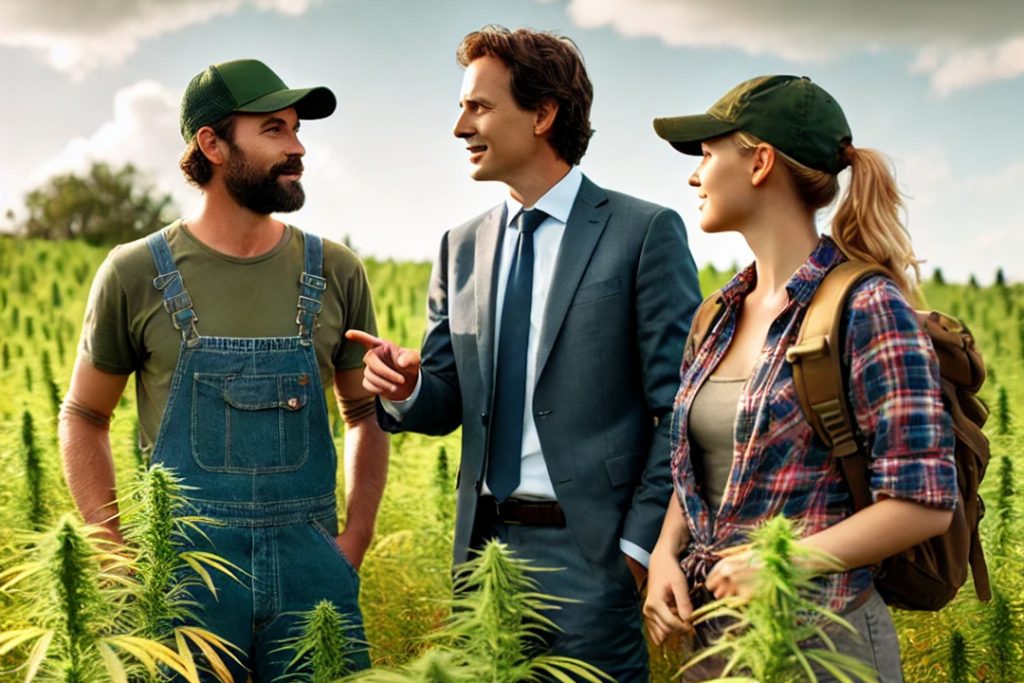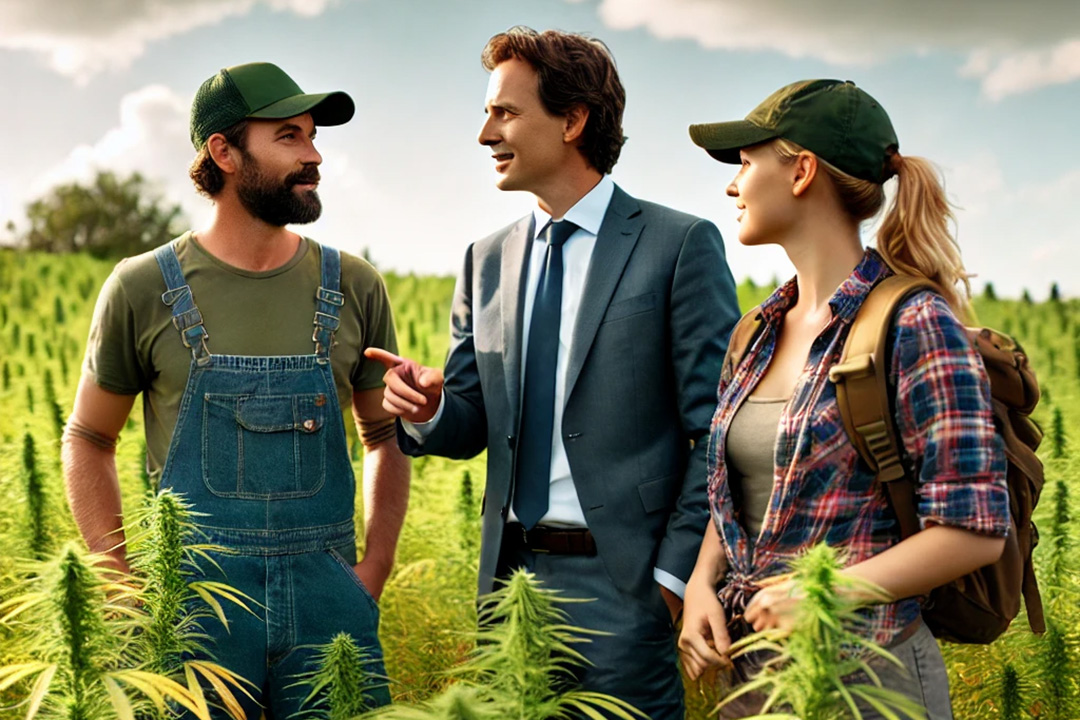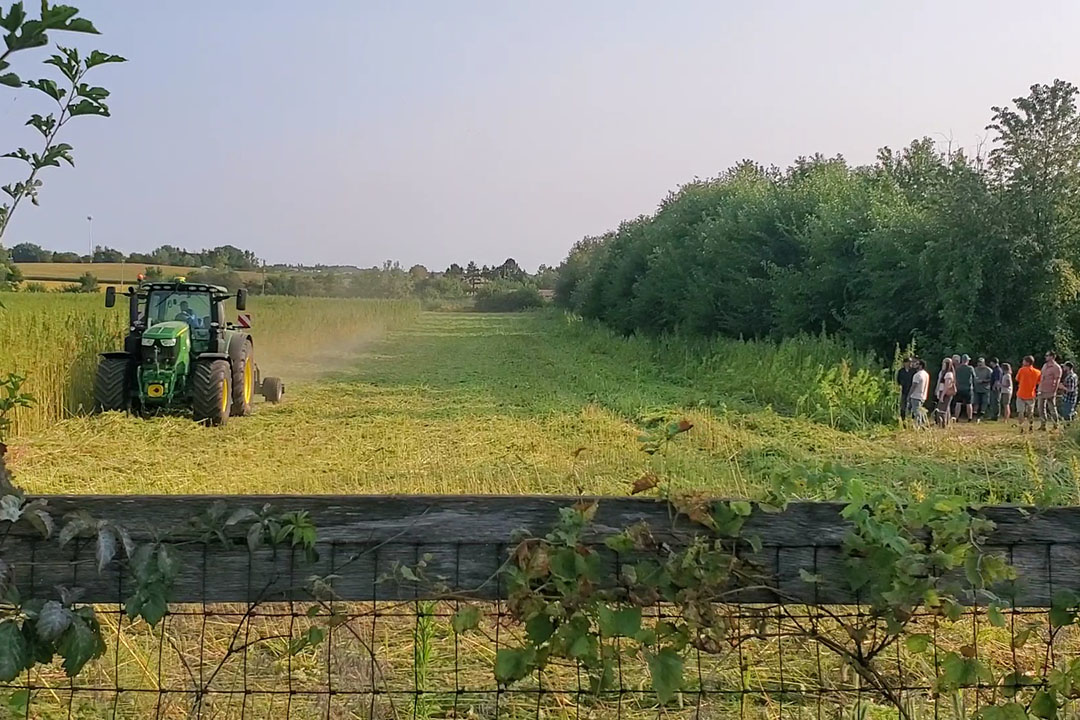Farmers in the United States, especially those growing soybeans and other row crops, are facing mounting economic challenges. Meanwhile, conservationists are calling for sustainable solutions to meet growing environmental demands, evidenced most recently by the devastation caused by Hurricane Helene, which resulted in over $95 billion in damages across the Southeastern U.S.
At Kifcure, we believe that industrial hemp is a game-changer, offering a sustainable, profitable alternative to traditional crops, while providing a critical bridge between the agricultural community and conservationists. To ensure transparency and accountability, we’re collaborating with groups like Merge Impact to develop inroads between these sectors by implementing MMRV standardization—a framework that tracks Measurement, Monitoring, Reporting, and Verification for key performance indicators (KPIs) and reports data to banks and institutions.
Understanding the MMRV Framework
At its core, MMRV standardization refers to creating a consistent and transparent method for measuring the success of environmental, social, and governance (ESG) initiatives. This includes monitoring carbon reductions, emissions, and sustainability metrics, all of which help investors, policymakers, and the agricultural sector understand the real impact of their actions.
At the Sustainable Ag Exchange event in Chicago, recent discussions highlighted that financial institutions and corporate governance groups are increasingly interested in clear, verifiable data. Kifcure is working hard to implement this framework, particularly with our Northern Illinois Hemp Hub (NIHH) tenants and partners, ensuring that our efforts in sustainability and climate resilience are properly measured and validated.
The Economic Struggle of Traditional Row Crops
Farmers across the U.S., particularly in corn-heavy regions, are experiencing some of the tightest margins in recent history. Recent report from local farming publications state that farmers in our area must receive at least $5 per bushel of corn to break even. Yet, by late August 2024, corn prices had dropped to a mere $3.83 per bushel, well below the break-even point. This marks the lowest point since 2019, and considering inflation and rising input costs, the situation is far worse now than it was then.
Currently, 60% of the corn harvested in the U.S. remains unsold, sitting in barns and bins as farmers wait for a potential price rally. This economic “stare-down” between farmers and buyers is creating significant volatility in both cash and futures markets. Where big oil has been taking full advantage of the unbalanced supply and demand dynamic. The problem is further compounded by the risk that the upcoming, ultra successful, harvest will soon flood the market, driving prices even lower.
Industrial Hemp: A Profitable and Sustainable Alternative
While traditional crops continue to face economic hurdles, industrial hemp is emerging as a profitable and sustainable alternative. In contrast to corn’s diminishing returns, hemp is offering local farmers a 16-fold return on investment per acre after inputs, according to recent data. This not only provides much-needed financial relief but also opens the door to participation in sustainability markets, such as carbon credits, where MMRV data becomes vital.
Hemp’s value extends beyond economic gains. As a carbon-negative crop, it sequesters CO2 while requiring fewer resources than traditional crops. This makes it an attractive option for both farmers and environmentalists alike. Hemp can play a pivotal role in reducing greenhouse gas emissions, enhancing soil health, and even replacing carbon-heavy materials in industries such as plastics, construction, and textiles.
Hurricane Helene: A Call to Action for Sustainable Investment
The destruction caused by Hurricane Helene serves as a sobering reminder of the rising financial burden linked to environmental disasters. With estimated damages between $95 billion and $110 billion, the storm underscores the need for systemic change. These costs will only increase unless we invest in sustainability, including regenerative agriculture, clean energy, and resilient land use strategies.
Kifcure recognizes the pivotal role that industrial hemp can play in this transformation. By creating partnerships between farmers, conservationists, and policymakers, we’re working to drive real, measurable progress. Scaling hemp production offers a unique opportunity to enhance livelihoods while contributing to a more sustainable future.
Collaborating for a Sustainable Future
At Kifcure, we are working diligently to unite three traditionally separate groups: farmers, conservationists, and financial institutions. Historically, these groups have often been seen as working against each other, with farmers focused on economic survival, conservationists advocating for environmental protection, and institutions grappling with how to track the impact of their investments.
However, there is now a growing openness to explore solutions that address the needs of all three. Industrial hemp was once viewed as a “controversial” crop, but now education and advocacy is exposing that it is a legitimate, scalable solution to both economic and environmental problems. We are committed to working with local farmers and tenants at our Northern Illinois Hemp Hub to help them transition to this versatile row crop by providing education, resources, and access to markets.
Through collaboration with groups like Merge Impact, Kifcure is focusing heavily on ensuring that the impact of these efforts is tracked, measured, and reported in a way that meets institutional demands of the new Environmental Social Governance. MMRV standardization is critical to this process, providing the transparency and accountability expected while giving farmers and environmentalists the data they need to validate their efforts. While there is optimism that carbon credits will eventually trade at a value sufficient to justify the opportunity cost for farmers, the true currency often overlooked in these discussions is data!
A Message of Hope and Opportunity
At a time when the world is facing unprecedented challenges—both environmental and economic—we believe there is hope. Industrial hemp offers a sustainable, profitable path forward, one that bridges the divide between conservation and agriculture. By working together and embracing new, innovative solutions, we can create a future where farmers thrive, the environment flourishes, and stakeholders profit from meaningful change.
The silver lining in today’s crises is the opportunity to transform agriculture and industries into sustainable forces for good. At Kifcure, we’re excited to be at the forefront of this movement, creating inroads between unlikely allies and fostering a collaborative approach to sustainability.
Join us as we work to unite farmers, conservationists, and policymakers in the fight for a more sustainable future. Together, we can cultivate a healthier planet and a stronger economy—one hemp plant at a time.
Contact Kifcure to learn more about our initiatives and how you can be part of the movement.


